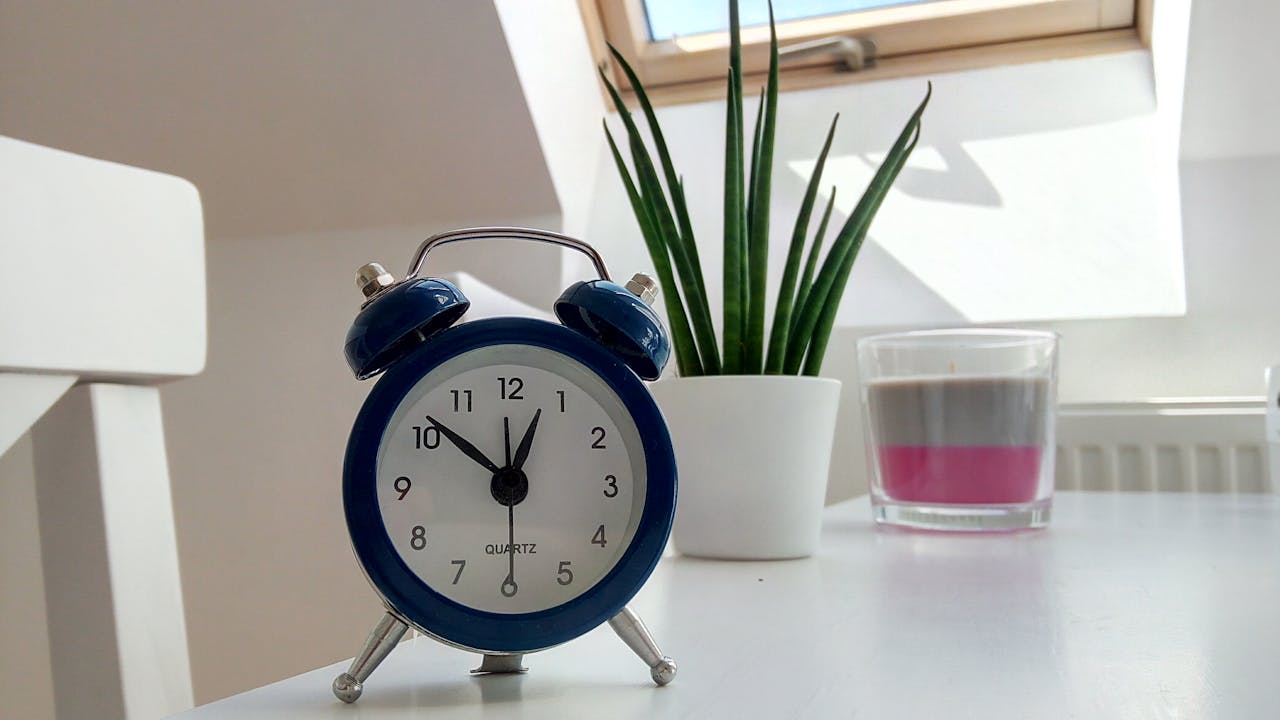Electrolyte fasting: Understanding electrolyte deficiency in fasting and finding tips for maximum benefits

Do electrolytes break a fast? Click to learn about the role of electrolytes, the effect of fasting on their levels, and whether you need to replenish them or not.
In a nutshell
Electrolytes are substances with positive and negative electrical charges that are dissolved in water. Found in nearly all fluids and cells in our body, they are essential elements that help regulate a variety of important functions.
During fasting, your levels of electrolytes are excreted more rapidly, while new electrolytes from food are not coming in, which can cause imbalances. In order to avoid the symptoms of electrolyte deficiency, it’s important to supplement your level of electrolyte during fasting with electrolyte-infused water, which doesn’t break a fast due to a low content of calories.
Fasting, in various forms, can improve control of blood sugar levels, reset metabolic function, promote weight loss, and provide a wealth of other benefits. At the same time, posing systematic changes across energy sources and the work of your organs, fasting can also lead to certain deficiencies. In particular, studies reveal an increased risk of electrolyte deficiency in individuals practicing fasting, which means that supplementing electrolytes during fasting might be crucial for retaining benefits and promoting health.
{{pink-banner-2}}
What Are Electrolytes?
In order to understand the importance of an adequate level of electrolyte while fasting, it’s crucial to understand what electrolytes are and what functions they perform in our bodies.
In a nutshell, electrolytes are substances that have a positive or negative electrical charge when dissolved in water. Their importance is hard to undervalue because since our bodies consist of around 60% water, nearly all fluids and cells naturally contain electrolytes. That is, electrolytes participate in many important bodily functions, such as:
- Maintaining fluid balance
- Balancing acid/base (pH) levels
- Moving nutrients into your cells
- Moving waste out of cells
- Supporting muscle and nerve functions
- Stabilizing blood pressure
- Maintaining bone and teeth health
- Supporting heart health
Understanding the “Fasting Electrolyte” Connection
Now that you understand the general concept of electrolytes and their massive role in your body, let's define the “electrolytes fasting” concept.
Basically, your body can only receive electrolytes from what you eat and drink. Different types of electrolytes can be found in products like bananas, avocados, milk, spinach, and many others. At the same time, your kidneys constantly filter excess electrolytes and expel them with your urine and sweat. That is, you always have a certain balance of electrolytes in your body that gradually decreases if you don’t consume new electrolytes.
Now, what happens during fasting? During fasting windows, you don’t consume any calories and, respectively, don’t receive new electrolytes. According to the American Journal of Medicine, when you experience rapid weight loss in the initial stage of fasting, it typically happens at the expense of losing water. The changing fluid balance leads to more rapid excretion of essential electrolytes. Respectively, when you fast from food, you also fast electrolytes and rid your body of their sources for prolonged periods of time.
On top of that, there is another factor that may contribute to electrolyte loss. If you combine fasting with regular exercise for weight loss and health benefits, you lose essential electrolytes at an even faster pace through sweat. In this case, it’s highly recommended to replenish their levels according to your physical activity.
Common Symptoms of Electrolytes Fast
When you lose essential electrolytes, it can lead to significant imbalances in your body. The most common symptoms of electrolyte deficiency include:
- Fatigue
- Confusion
- Irritability
- Diarrhea or constipation
- Nausea and vomiting
- Headache
- Arrhythmia (irregular or fast heart rate)
- Muscle weakness and cramps
- Numbness or tingling in limbs
Needless to say, these symptoms, accompanied by other fasting challenges, such as difficulty controlling cravings or mood swings, can make your fasting journey not very pleasant. That’s why minding your electrolytes is important during fasting.
Do Electrolytes Break a Fast?
So you already have all the background info about electrolytes, their importance, and deficiencies. Now, the question is – does electrolytes break a fast?
We need to look at this question from several answers to find the answer:
- Electrolytes in food - If we’re talking about electrolytes contained in nuts, vegetables, fruits, and other food, we can confidently say that consuming them during your fast will break it. Regardless of the type of fast, the core idea is to abstain from food during your fasting window. Thus, eating something will mean breaking it.
- Electrolytes in beverages - The situation is slightly different with beverages. When you are in your fasting period, you are typically not restricted in consuming water and, sometimes, some other low-calorie beverages like black coffee. The only rule is not to consume calories with your beverages. Electrolytes naturally can contain from 0 to 5 calories, which is why they are often considered calorie-free. So can you drink electrolytes while fasting? The answer is “yes,” electrolyte-infused drinks will not break your fast.
- Water fasting - This kind of fast is considered one of the strictest ones, as it only allows you to drink plain water for a certain amount of time (typically for 24-72 hours). Still, despite its strictness, drinking electrolytes while water fasting is generally also acceptable, as it can help support essential bodily balances and functions even in prolonged periods with no food.
Benefits of Electrolyte Water for Fasting
While they don’t break a fast, getting your daily dosage of fasting electrolytes actually brings a number of benefits:
Prevent Dehydration
Fasting frequently leads to rapid fluid loss. Electrolytes that help maintain a healthy balance of liquids in your body can help prevent dehydration. This is especially important if we talk about intermittent fasting electrolytes because prolonged fasting might be linked to a higher risk of dehydration.
Preventing Keto Flu
Ketosis is a metabolic state in which your level of ketone bodies increases due to low glucose availability. Your body naturally enters the state of ketosis when you’re fasting. However, while this process is normal, it can bring you unpleasant symptoms of the so-called “keto flu,” such as headaches, nausea, vomiting, and others. Drinking electrolytes water fasting can help prevent or relieve these symptoms.
Support Energy and Muscle Strength
As you already know, low energy, fatigue, and muscle weakness are among the most common symptoms of electrolyte deficiencies. Drinking electrolytes while fasting can help mitigate these symptoms and help you feel more energetic and generally better. This is important in prolonged fasting, during which your body naturally sets itself in an “energy-saving” mode that can interrupt your daily activities.
Support Cognitive Function
Low electrolyte levels affect your nervous system and can slow down signals in the brain. As a result, imbalances can lead to brain fog, irritability, issues with concentration, and other cognitive problems. A combination of plain water and electrolyte has been proven to support cognitive function and mood.
Balance Blood Pressure
One of the essential electrolytes, sodium, is known to have a direct impact on your blood pressure. Respectively, when it drops, you can experience a rapid drop in blood pressure and lightheadedness. Consuming sodium during fasting can help make up for lost sodium and balance blood pressure.
Simplify the Process of Breaking a Fast
Last but not least, receiving sufficient electrolytes during fasting is important not only for benefits at the moment of fasting but also for a smoother and more comfortable breaking of a fast. The thing is that coming back to a regular eating schedule after fasting can be very stressful on your body, especially if you’ve been fasting for a long time. Keeping your electrolyte levels in balance can help support metabolic function and digestion for a more seamless transition.
FAQ
What happens to essential electrolytes during fasting?
According to experts and multiple studies, fasting causes faster loss of essential electrolytes and their excretion with urine. Additionally, if you keep your physical activity high and exercise regularly, their loss can be even more fast-paced. This can lead to electrolyte deficiencies and many side effects like fatigue, headaches, etc.
Does Pedialyte break a fast?
Pedialyte, as well as other electrolytes, naturally contains no to very few calories. Thus, you can consume them without breaking your fast.
Can I drink electrolytes while fasting?
Yes. While you cannot receive essential electrolytes from food without breaking a fast, you can use electrolyte water fasting to replenish the levels of these essential elements and support your well-being.
Can I have electrolytes while fasting with only water?
Yes. Although water fasts are generally stricter, they usually don’t prohibit electrolytes as they contain no calories. Drinking electrolyte-infused water is the best way to supplement your water fast electrolytes.
How much electrolytes during fasting do I need?
It’s important to consider how long you’ve been fasting, your overall diet and the amount of electrolytes you receive from food, and your physical activity level to say how much electrolytes you need to supplement. It might be a good idea to consult with a healthcare provider or nutritionist for personalized recommendations.
Conclusion
So does electrolyte water break a fast? As you now know, drinking electrolyte-infused water does not break a fast due to a low content of calories. What is more, electrolyte water can bring you a wealth of benefits, as during fasting your body tends to lose electrolytes faster, which can cause internal imbalances.
Supplementing lost electrolytes while fasting can help prevent dehydration, promote energy levels, improve muscle strength, support cognitive functions, and even simplify your transition from fasting to regular eating. So don’t hesitate to drink electrolyte water while fasting to secure good well-being and added benefits.
{{pink-banner}}








.avif)
